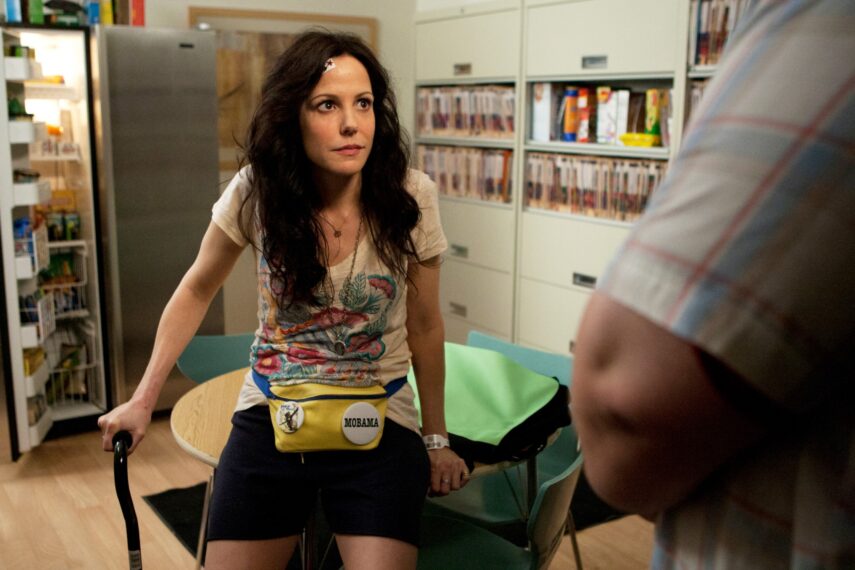“Cowboy Overtures,” performed at Casper College on Saturday night by members of a local brass works company and other Wyoming musicians, is a testament to the power of kitchen table conversations. Talking over the table in their Casper home one evening, Steven Trinkle and his wife, and Genie Burkett, decided that instead of playing abroad again, they should stay in Wyoming and celebrate the music of the West. So they arrived at “Cowboy Overtures.
” The idea was born long before the performance could be planned. Burkett applied for grants months in advance. The endeavors were successful.

Thanks to funding from the Wyoming Cultural Trust Fund, National Endowment for the Arts and the Wyoming Arts Council, among others, the performance was free to the public. Trinkle built the program with seven songs, each a nod in some way to midwestern and western culture — the rise of the railroad, the exhaustion of the midwestern soil that led to the Dust Bowl, the open spaces and rolling hills that Wyoming is known for. In an interview before the performance, he likened it to storytelling.
“It’s assembling a story, much like writing an essay,” he said. His brass company, Trinkle Brass Works, and musicians from around the state gathered Saturday evening to tell the story. Trinkle started with The Plow That Broke the Plains by Virgil Thomson, a piece written for a government film about the Dust Bowl and its catastrophic effects.
He thought it fit Wyoming’s dryness and windiness. The next piece came from another chat over the kitchen table. Trinkle and Burkett wondered if there was a piece of music specifically about Wyoming and, if so, how they might get their hands on it.
Burkett, who has a doctorate in curriculum and instruction, searched for something — and found a candidate. Composer Morton Gould’s “The Hills of Old Wyoming” sparked intrigue in both. Based on a tune sung in a movie of the same name, “The Hills of Old Wyoming” is “a real gem,” Trinkle said.
Burkett called a connection from the Library of Congress, asking if they had the sheet music for the song. They did, he said, but not in the Library. The music was in a storage facility.
A runner retrieved it and brought it back to the Library. Listen now and subscribe: Apple Podcasts | Google Podcasts | Spotify | RSS Feed | SoundStack | All Of Our Podcasts “A few days later, he calls,” Trinkle said. “It’s here.
It’s here, and it is in pencil, and all the parts of the score [are] here.” “The Hills of Old Wyoming” had made its way back to Wyoming at the couple’s beckon. Of course, the penciled notations were a bit hard to read.
So Burkett computerized the photocopy they had received. The Cowboy State’s history with the railroad inspired Trinkle to add “John Henry” by Aaron Copland, a piece about a man in competition with a steel driving machine. The sounds reminded him of a steam engine.
“Dances With Wolves” came from composer John Barry, another work for a movie — this time, one about how a Union soldier joins a group of Native Americans from the Lakota tribe. Much of the film is in the Lakota language. To involve the audience, Trinkle punctuated the concert with “America the Beautiful,” which the audience was invited to sing.
Casper native Cory McDaniel narrated the spoken portion of “The Plow That Broke the Plains” and sang “John Henry” and “The Hills of Old Wyoming,” both of which are based on folk songs. This is Trinkle and Burkett’s second time living in Casper. They live in a home in the city’s Big Tree neighborhood; they built a porch specifically to fit an orchestra so they could have front porch performances.
Their home is full of musical inspiration and decoration, sometimes literally in the form of instruments that line walls. In a yellow room that faces the front of the house, with honeywood floors and large windows, Trinkle keeps his sheet music, books, a speaker system and several instruments. After spending time abroad, Trinkle and Burkett returned to the U.
S. to start a brass quintet company to play in rural areas around the southwest. He also has a smaller group called Portable Masterpieces that joins them for many performances, including the one on Saturday night.
According to Trinkle, there are three different types of musicians: jazz musicians (they only ever listen to jazz); people like his good friend Hans Sturm, a bass player whose imagination is “unbelievable”; and classical musicians (they only ever play classical). That is what Trinkle considers himself to be. He pivoted from rock bands to classical music when he realized that you could make more money playing for a wedding ceremony than you could playing rock music for hours.
But most of all, Trinkle loves music. It is in the instrument-lined room that he shows the Star-Tribune recordings of folk songs and compositions. “John Henry” elicits swinging hands and tapping feet and an animated “those sounds are magic.
” “That’s what I want to have happen every time, not only when I do a solo performance or with my ensembles ...
I want somebody in the audience to go ‘Yeah, yeah. I got it,’” he said. “That’s why we do this.
What a great art form. The invigorating, emotional context that comes from this kind of music is why I keep doing it.”.



















